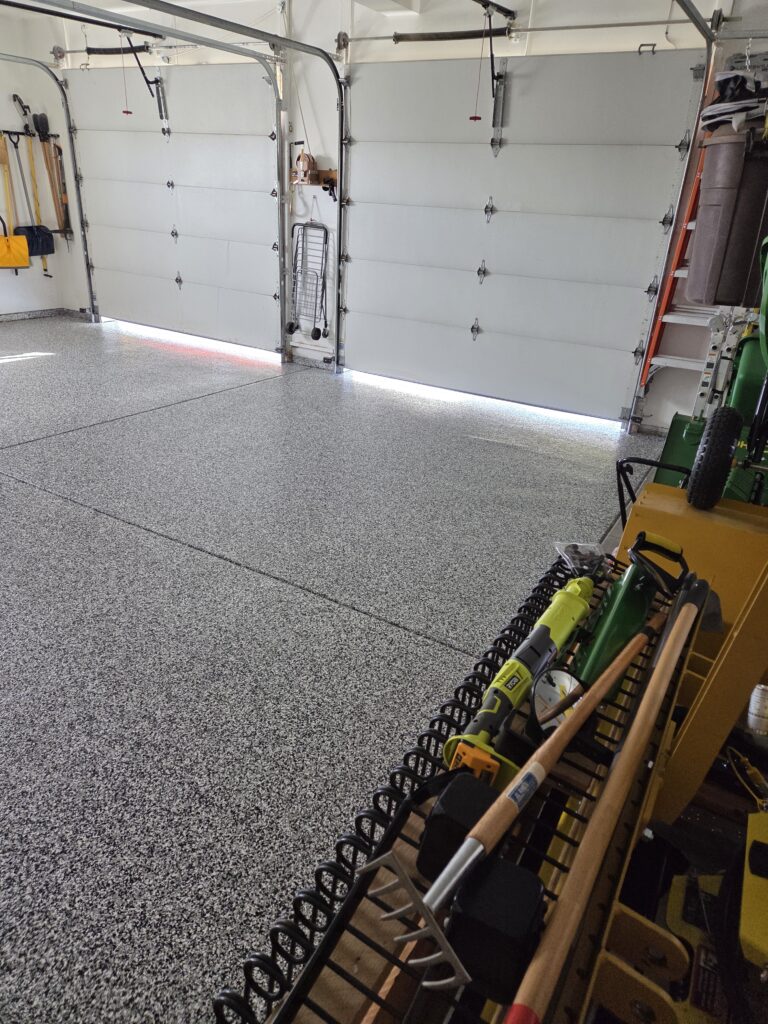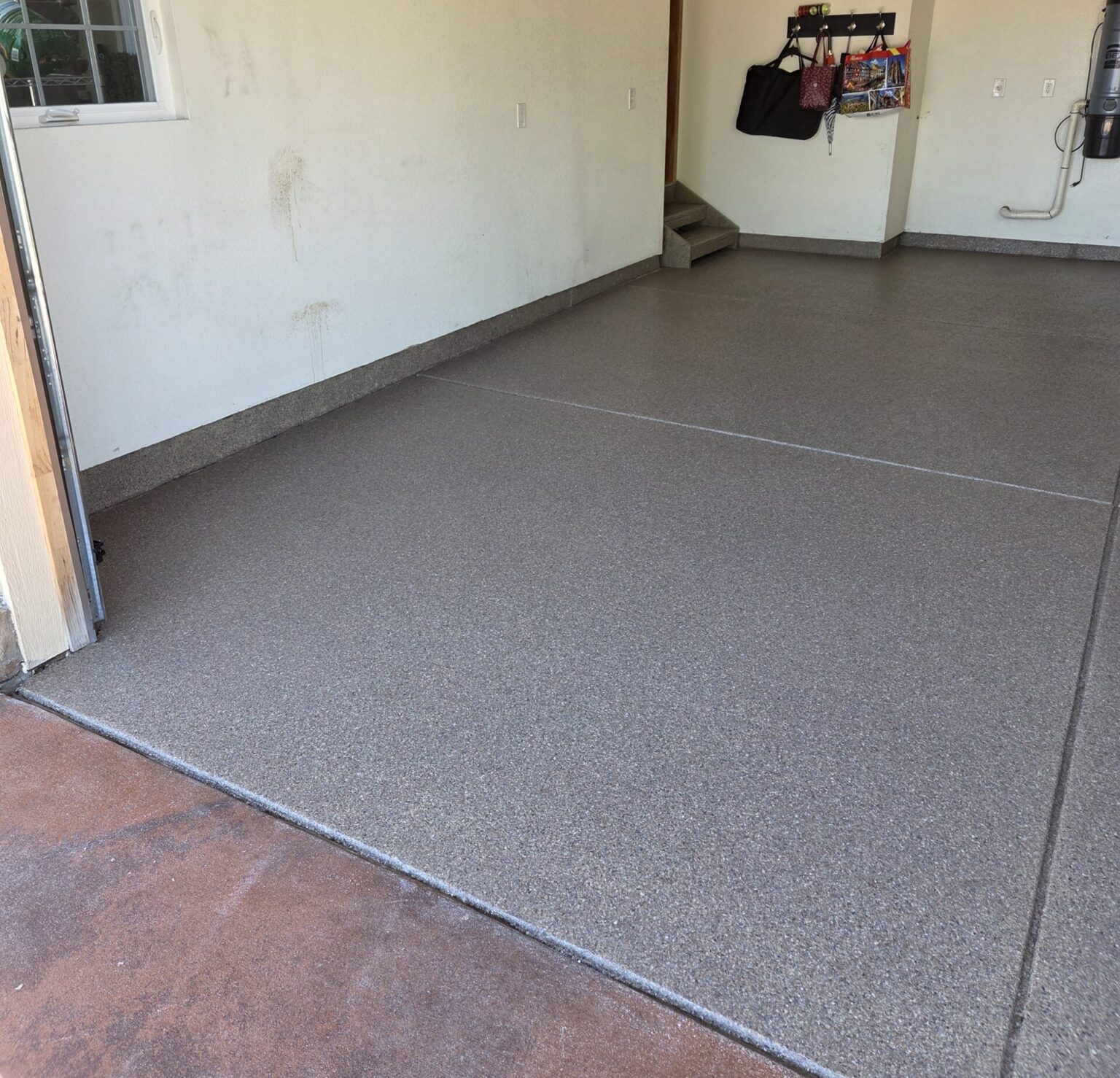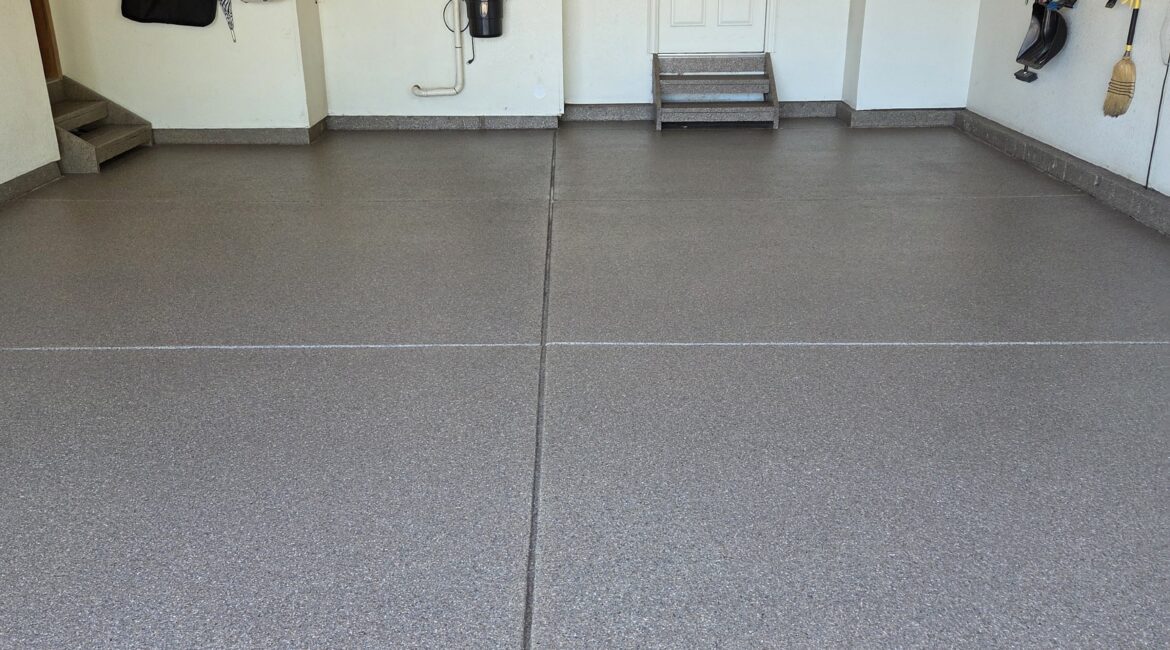If you’re thinking about upgrading your garage or basement with garage floor coatings in Longmont, you probably have questions—and you’re not alone! We hear from homeowners all the time who are curious about what makes our floor coatings different and whether they’re worth the investment. So today, we’re answering the top five questions we get, straight from the source.
1. How does epoxy compare to polyaspartic coatings?
Great question—and one we get all the time! While “epoxy” is the term most people use when searching for garage floor coatings, what we actually install is a polyaspartic coating system. It offers faster cure times, better UV stability, and higher durability than traditional epoxy.
That said, epoxy is still a legitimate option. It goes on thicker and dries more rigid, which isn’t necessarily a bad thing—but it’s more likely to crack or chip when the concrete underneath moves. That’s especially important in Colorado, where freeze/thaw cycles and natural settling are common.
We prefer polyaspartic because it’s more flexible, allowing it to move with the concrete. It also resists yellowing from UV exposure and won’t lift or peel due to hot tires—making it a longer-lasting and lower-maintenance choice for our climate.
2. Can garage floor coatings handle Colorado weather?
Absolutely. Our polyaspartic floors are specifically chosen for their performance in Colorado’s extreme weather conditions. From icy winters to blazing summer heat, they hold up without flaking, fading, or peeling.
Polyaspartic coatings are non-porous and waterproof, meaning they don’t absorb moisture, and they resist magnesium chloride—the de-icer used on roads here in Longmont. This keeps your concrete protected and looking great for years.
3. How long does installation take?
We complete most garage floor installs in two days—that includes proper concrete prep, patching any surface damage, applying the basecoat, broadcasting the flake, and sealing with a topcoat.
Some companies advertise same-day installs, but we prefer to take the time to let each layer cure properly. We want to make sure none of our floors are ever rushed and no detail is left unchecked. Taking an extra day means better patching, better adhesion, and a floor that’s truly built to last.

4. What kind of maintenance is required?
These floors are designed to make life easier. Day-to-day, just pick up any large debris (especially sharp items like screws or nails) and wipe up spills—just like you would with any hard surface inside your home.
For deeper cleaning, a quick sweep and mop with mild soap or a pH-neutral cleaner (like Simple Green) is usually plenty. Power washing is totally fine too—just use the widest tip, lowest setting, and never spray at point-blank range.
When properly installed, a polyaspartic floor is significantly easier to clean than bare concrete, which tends to hold onto dust, stains, and grime. A sealed floor doesn’t just look better—it stays cleaner with less effort.
5. Will it be slippery?
All of our floors include a full broadcast of decorative flake, which adds both color and texture—creating natural traction underfoot.
While any surface can become slippery when wet, our flooring is anti-slip by design and performs well in everyday conditions.
If your space needs extra grip—like in frequently wet areas, workshops, or commercial settings—we can also add a traction additive to the topcoat for even more slip resistance and peace of mind.

Thinking About Garage Floor Coatings in Longmont?
We’d love to help you protect and elevate your space with a floor that’s built to last. Contact us today and let’s chat about what you need!

